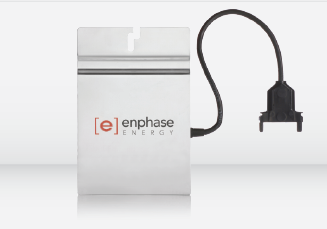Welcome to the
Run on Sun Monthly Newsletter

In this Issue: |
June, 2011
Volume: 2 Issue: 6
What Kind of Company Chooses Solar?Since not every company's roof sports a solar power system, it is clear that not every company is going solar. So that got us thinking - just what kind of companies are choosing to incorporate solar into their business plans? A quick scan of recent headlines reveals that some of the best known companies in this country are making big plays to add solar. Consider these headlines:
The list goes on and on. What do all of these companies have in common? Pretty much every one of these news stories reflected the same wisdom that was described by Kikkoman's management. Particularly in California, the combination of abundant sunshine, respectable solar rebates and positive tax incentives (both in the form of the 30% federal tax credit and the federal and state accelerated depreciation schedules) makes adding solar a compelling financial decision. Indeed our most recent commercial clients are seeing an internal rate of return in excess of 17% with payback occurring as soon as Year 4. By Year 10, the owner of a 50 kW solar power system will have not only paid off their entire out-of-pocket cost, but they will have more than $100,000 in savings to boot. No other investment that could be made in your business can match that return. Don't be left out - follow the lead of some of the best known companies in America who have figured out that it is time to Go Solar, Now! |
“The combination of abundant sunshine, respectable solar rebates and positive tax incentives makes adding solar a compelling financial decision…”
Help Us Spread the News!




Why is the Enphase M215 So HOT?
So why do we think the new model will be such a step up? First and foremost is the upgrade on the warranty to 25 years! No other inverter manufacturer offers anything comparable as their standard warranty. This means that the key components of the array - the solar panels and the inverters - will now have warranties of identical duration. We believe this is a huge step forward in building client confidence in the fundamental reliability of solar power systems. Second, the M215 has improved its CEC efficiency rating to 96% making it the match of any of the popular string inverters. Third, the M215 should be easier to install as it now only requires a single bolt to attach it to the array racking and its new cabling system should allow for a smoother installation process which will help to drive down costs. Finally, the M215 is compatible with some of the more powerful solar panels out there, such as the Suntech 225. We believe that the pairing of the Suntech panels with the M215 will be a great fit for many of our residential and smaller commercial clients. Put it altogether and we believe that the Enphase M215 has the potential to be a real game-changer. If you have been wondering when would be the right time to add solar to your home or business, the M215 is one more reason why the right time to add solar is NOW! |
Companies that Lease Solar May Run Afoul of the FTCThe ability to market their efforts at "Going Green" is a common reason why commercial clients install solar power systems. But now under the new revisions to the "Green Guides" proposed by the Federal Trade Commission (FTC), companies that lease rather than purchase solar systems may be engaging in deceptive business practices if they advertise the solar power system on their roof. The issue is "double counting" and the FTC is serving notice that it intends to crack down on companies that attempt to promote environmental credits that they do not own. Read the full story: 'Claiming' Solar and the FTC…
|
